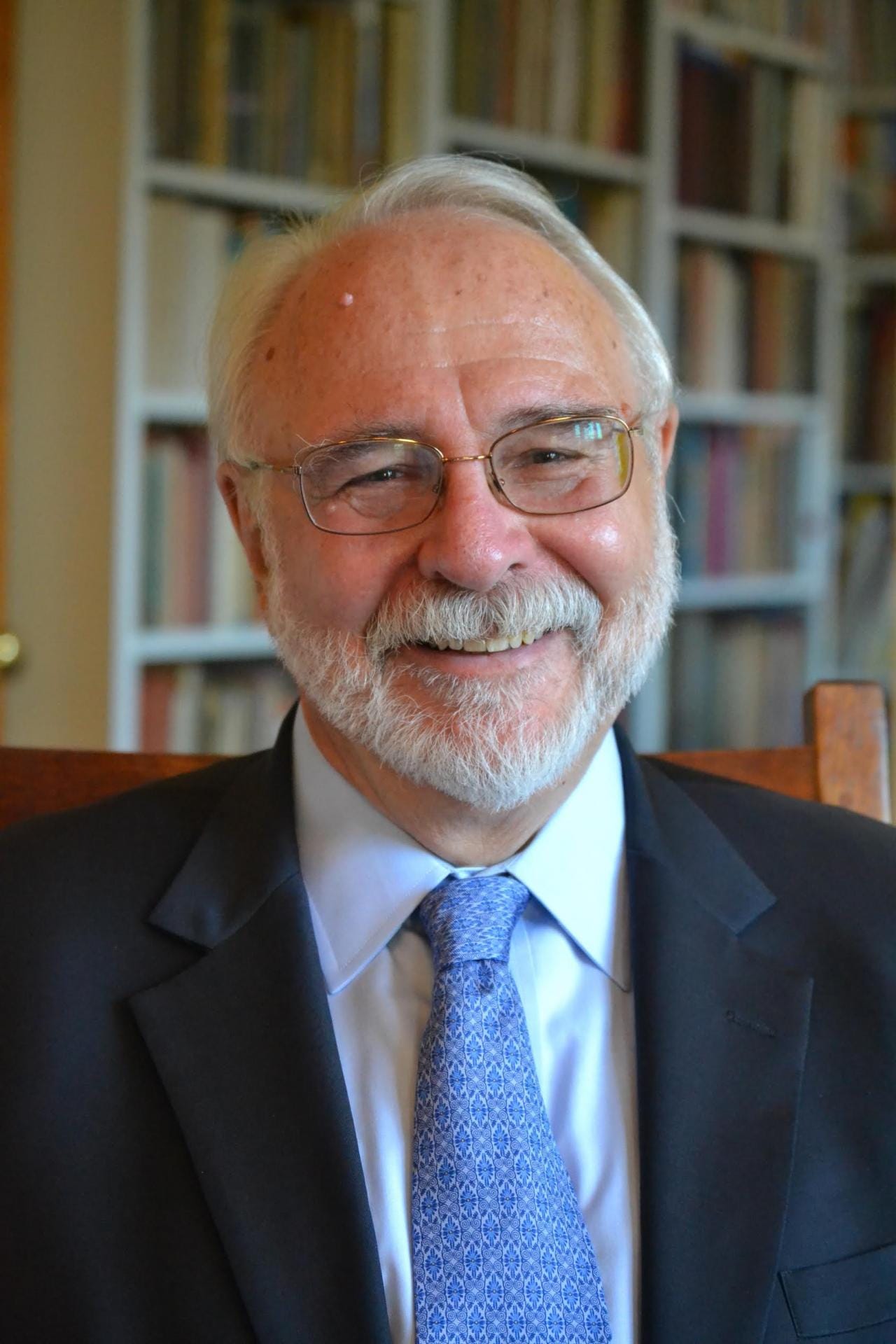Roger Lehecka CC ’67 To Serve as Interim Dean of Undergraduate Student Life
The appointment comes less than three weeks after Dean Cristen Kromm resigned in the wake of her involvement in a text messaging scandal.
Columbia’s administration has appointed Roger Lehecka CC ’67, GSAS ’74, as interim dean of undergraduate student life, according to an internal department email obtained by Sundial. As of publication, the administration has not officially announced the appointment.
Lehecka is not new to Columbia or its administration, having served in various positions at the University for more than 30 years, including nearly two decades as a highly popular dean of students for Columbia College from 1979 to 1998.
His appointment comes two months after Cristen Kromm was suspended as dean of undergraduate student life and later resigned from the University over her involvement in a controversial text message exchange during a May panel on Jewish campus life.
As dean of students, Lehecka worked to increase graduation rates in the 1980s, which climbed from 75 percent to 90 percent over six years, and guided the University’s transition to coeducation. Lehecka also led several initiatives aimed at helping minority students, including appointing an assistant dean in 1982 to deal specifically with the “problems of minority students and organizations,” and worked with students of color to establish the Intercultural Resource Center in 1986.
Lehecka also founded two programs aimed at increasing access to higher education: Columbia’s Upward Bound Program in 1965 (now known as the Roger Lehecka Double Discovery Center) and the National Opportunity Program (NOP) in 1986.
Although he officially retired from the university in 2004, Lehecka teaches an American Studies seminar on equity in higher education. “My love for Columbia and my debt to it remain enormous,” he told Columbia News in 2005.
Sundial’s Perspective
Among students, faculty, and alumni, Lehecka has always been known as a “man of great personal integrity” and a “mentor” for all. As interim dean of undergraduate student life, a position with much direct contact with students, these qualities are much-needed to encourage the student body to exercise unity and civility.
Lehecka re-enters the administration during an incredibly turbulent time. After the sudden resignation of University President Minouche Shafik, input from longstanding leaders in the Columbia community like Lehecka should be elevated in interim President Armstrong’s administration as they reflect on the events of last semester and plan a better path for this year. His experience advocating for equity and fairness for all and his programs’ emphasis on learning from “differing worldviews” will be a fresh perspective for Low Library.
Lehecka’s values and previous experience working with student groups will also be crucial for keeping student organizations—and their actions—in check. Groups like Columbia Students for Justice in Palestine (SJP) and Jewish Voice for Peace (JVP) fall under the jurisdiction of Undergraduate Student Life, and Lehecka may be the leader needed to guide them to a path of re-recognition and discourage them from escalating campus rhetoric to last semester’s extremes.
Lehecka is also no stranger to protests—or the violence that comes with them. He was even accosted by the Columbia University Marching Band during a humorous demonstration in 1983. He gave in and promised them “nattier band uniforms” and the replacement of Phi Beta Kappa with the band.
It’s good to know that Lehecka can take a joke, but his handling of a 1987 race-related brawl in front of Ferris Booth Hall deserves praise as well: Lehecka vowed that the incident “will take a lot of time to look into,” showing a carefulness that was seldom present in Shafik’s administration.
While Lehecka’s appointment isn’t the cure for our University’s broken community, it’s a move that should give us hope for unity, fairness, and safety this academic year.
Mr. Engel is a senior at Columbia College studying history and a staff writer for Sundial.




I was at Columbia while Roger Lehecka was dean. He was a good guy, a bit of a hippie in the best way, both competent and popular with students. I take his appointment as a good sign. The University has lost its way. Beyond tolerance for anti-semitism, it looks like propaganda is masquerading as instruction. Read this gibberish course description to see what I mean:
https://doc.sis.columbia.edu/subj/MDES/W4633-20241-001/
I hope and wish the Best for Dean Lehecka. He’s assuming responsibilities for uniting Students & Faculty of Columbia. I’ve never had the privilege of attending an outstanding university like Columbia. The School stands as a beacon of Academic rigor and works to improve in attracting
& retaining minorities. All we need to do is look at our results for Public Schools in major Cities - our Public Schools are failing.
Most important is the challenge in establishing & maintaining mutual dignity and respect for all . The Country witnessed a World Class Institution spiral into a tribal camp of hate . Columbia has an obligation to show the world how to get along and be respectful of our differences.
Calling people names and making threats undermines the confidence of Columbia as a Safe Environment where discussion of different cultures is encouraged and done so in a respectful manner